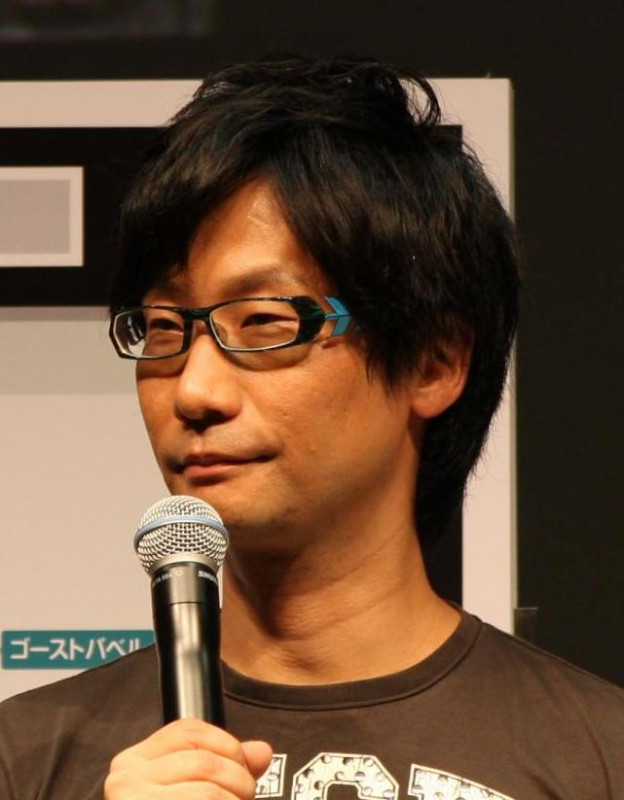Hideo Kojima is a celebrated Japanese video game designer recognized as a pioneer in the industry. His early passion for film and literature heavily influences his work. He joined Konami in 1986, where he created Metal Gear (1987), a groundbreaking title that established the stealth genre and became his signature franchise. While at Konami, he also produced the Zone of the Enders series and designed cinematic graphic adventure games like Snatcher (1988) and Policenauts (1994), solidifying his reputation for innovative and cinematic game design.
August 24, 1963: Hideo Kojima's Birth
On August 24, 1963, Hideo Kojima was born. He would later become a renowned Japanese video game designer, known for his cinematic style and pioneering work in the stealth genre.
1982: Inspiration from Blade Runner
In 1982, the movie Blade Runner was released, and it served as a heavy inspiration for Kojima's later game Snatcher.
1986: Kojima Joined Konami's MSX Division
In 1986, Hideo Kojima joined Konami's MSX home computer division. He initially hoped to work on Famicom games but felt restricted by the MSX's 16 color palette.
1986: Kojima Joined Konami
In 1986, Hideo Kojima joined Konami. He began his career at Konami, where he would later create the Metal Gear franchise.
1987: Release of Metal Gear
In 1987, Hideo Kojima directed, designed, and wrote Metal Gear for the MSX2. This game established the foundations for the stealth genre and the Metal Gear franchise.
1988: Release of Snatcher
In 1988, Hideo Kojima designed and wrote Snatcher, a graphic adventure game known for its cinematic presentation.
1990: Exploration of Policenauts Concepts
In 1990, Kojima began exploring concepts for Policenauts after experiencing memory limitation issues during Snatcher's development. He also developed a scripting engine after Metal Gear 2: Solid Snake.
1990: Work on Metal Gear 2: Solid Snake Began
In 1990, Kojima began work on Metal Gear 2: Solid Snake as a direct response to Konami's development of Snake's Revenge without his involvement.
1990: Release of SD Snatcher
In 1990, Kojima wrote SD Snatcher, a remake of Snatcher. The game adapted the storyline of the original but changed the environment, details, plot, and core gameplay mechanics.
July 29, 1994: Policenauts Released in Japan
On July 29, 1994, Policenauts was released in Japan for the PC-9821. Critics praised it for its high level of presentation, animation, voice acting, and engrossing setting.
1994: Release of Policenauts
In 1994, Hideo Kojima designed and wrote Policenauts, a graphic adventure game recognized for its cinematic presentation.
1994: Planning for Metal Gear Solid Begins
In 1994, Kojima began planning a 3D sequel to Metal Gear 2: Solid Snake, titled Metal Gear Solid, originally for the 3DO Interactive Multiplayer.
1996: Metal Gear Solid Gameplay Demo
In 1996, Kojima revealed a gameplay demo of Metal Gear Solid to the public at the Tokyo Game Show.
1997: Metal Gear Solid Shown at E3
In 1997, a short video of Metal Gear Solid was shown on day 2 of E3, generating further anticipation for the game.
2000: Vagrant Story Release
In 2000, Square's Vagrant Story was released which contained a similar battle system to SD Snatcher.
2001: Zone of the Enders Release
Before the release of Metal Gear Solid 2, Kojima produced the game and anime franchise Zone of the Enders in 2001.
2001: Details of Metal Gear Solid 2 Released
In early 2001, Kojima released the first details of the sequel to Metal Gear Solid, Metal Gear Solid 2: Sons of Liberty, for the PlayStation 2. The detailed graphics and expanded gameplay made it highly anticipated.
2003: Boktai: The Sun Is in Your Hand Release
In 2003, Kojima produced Boktai: The Sun Is in Your Hand for the Game Boy Advance. Players used a solar weapon charged by a photometric sensor, encouraging them to play in sunlight.
November 17, 2004: Metal Gear Solid 3: Snake Eater (North America)
On November 17, 2004, Metal Gear Solid 3: Snake Eater was released in North America. The game, set in 1964, focused on wilderness survival and espionage.
December 16, 2004: Metal Gear Acid Release (Japan)
On December 16, 2004, Metal Gear Acid, a turn-based strategy game for the PlayStation Portable, was released in Japan.
2005: Kojima Founded Kojima Productions
In 2005, Hideo Kojima founded Kojima Productions within Konami, marking a significant step in his career.
March 21, 2006: Metal Gear Acid 2 Release
On March 21, 2006, Metal Gear Acid 2, the sequel to Metal Gear Acid, was released.
2007: Engadget on Kojima's Playfulness
In 2007, J. C. Fletcher of Engadget commented on Kojima's stylization of character designs in SD Snatcher, interpreting it as postmodern playfulness.
June 2008: Metal Gear Solid 4: Guns of the Patriots Release
In June 2008, Metal Gear Solid 4: Guns of the Patriots, co-directed by Hideo Kojima and Shuyo Murata, was released.
2008: Fallout 3 Release
In 2008, Bethesda Softworks's Fallout 3 was released which contained a similar battle system to SD Snatcher.
2009: Interest in Western Collaboration
Before E3 2009, Kojima expressed interest in collaborating with a Western developer, leading to his partnership with MercurySteam on Castlevania: Lords of Shadow.
2010: Last Rebellion Release
In 2010, Nippon Ichi's Last Rebellion was released which contained a similar battle system to SD Snatcher.
2011: Appointment as Vice President
In 2011, Hideo Kojima was appointed vice president of Konami Digital Entertainment, recognizing his contributions and influence within the company.
2015: Departure from Konami
In 2015, Hideo Kojima departed from Konami, leading him to re-establish Kojima Productions as an independent studio.
2019: Release of Death Stranding
In 2019, Hideo Kojima's first game outside Konami, Death Stranding, was released, marking a new chapter in his career as an independent developer.
2019: Polygon on Penguin Adventure's Features
In 2019, Polygon's Julia Lee noted that Penguin Adventure, a game Kojima worked on over 30 years prior, had in-depth features.
2025: Release of Death Stranding 2: On the Beach
In 2025, Death Stranding 2: On the Beach, a sequel to Death Stranding, was released.
Mentioned in this timeline
PlayStation is a video game brand by Sony Interactive Entertainment...
Xbox is a video gaming brand owned by Microsoft Gaming...

Nintendo is a Japanese multinational video game company based in...
Facebook is a social media and networking service created in...
The United States of America is a federal republic located...

Sony is a Japanese multinational conglomerate based in Tokyo Its...
Trending

45 minutes ago Malik Willis' Value Debated as Cardinals and Steelers Weigh Options in NFL.
45 minutes ago Inter faces Como in Coppa Italia: Chivu makes eight changes in formation.

45 minutes ago Cristiano Ronaldo suffers hamstring injury; Al Nassr confirms major blow for the star.

46 minutes ago Raphinha becomes the new face of Calvin Klein's underwear campaign: Exclusive photos.

46 minutes ago Team USA Announces World Baseball Classic Rotation Featuring Webb, Skubal, and Skenes.

2 hours ago Jules Koundé suffers injury during Copa del Rey semi-final match.
Popular

Jesse Jackson is an American civil rights activist politician and...

Hillary Diane Rodham Clinton is a prominent American politician lawyer...

Jim Carrey is a Canadian-American actor and comedian celebrated for...

Ken Paxton is an American politician and lawyer serving as...

XXXTentacion born Jahseh Dwayne Ricardo Onfroy was a controversial yet...

Bill Clinton served as the nd U S President from...
